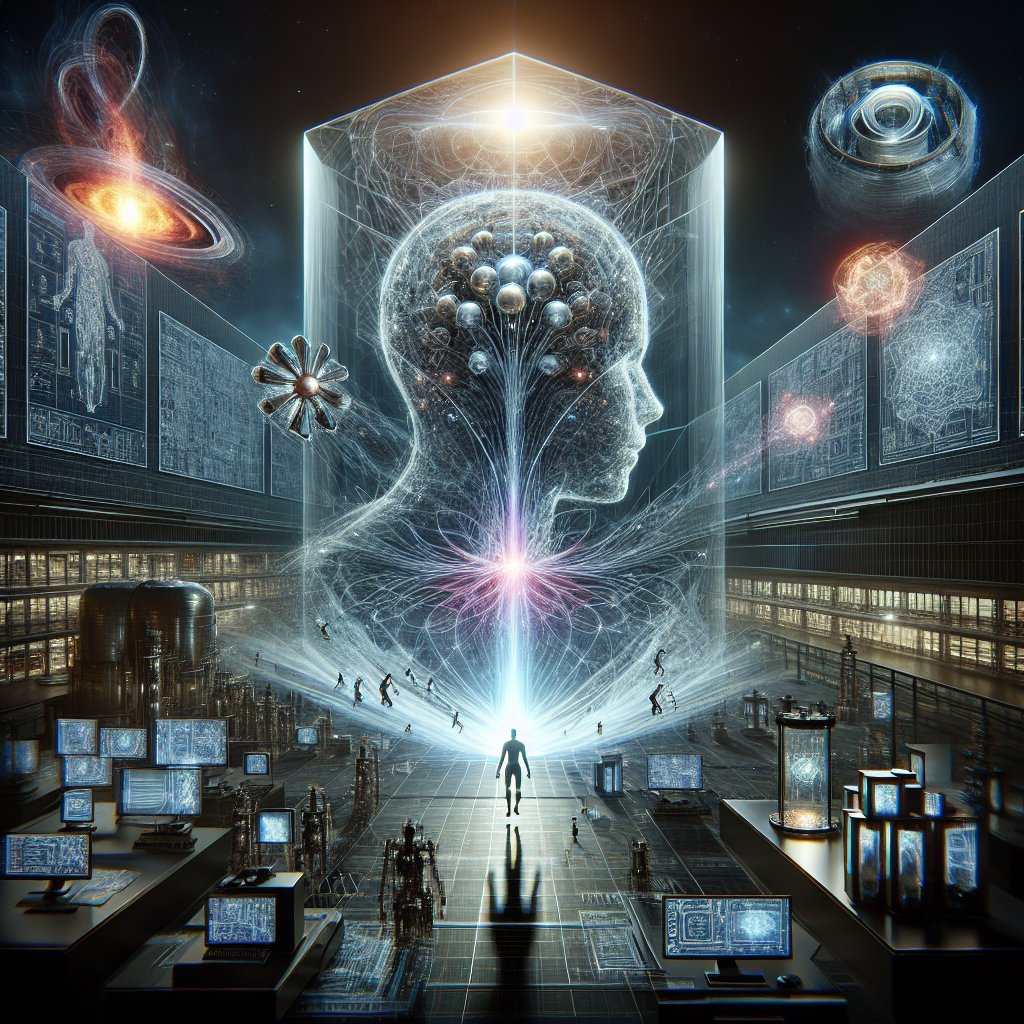Image created by AI
Unpacking the Illusion of Artificial Intelligence: The Limits of Today's AI Systems
As OpenAI's frontrunner, Sam Altman, sets his sights on colossal investments to fuel the AI revolution, questions arise around the true nature and capabilities of modern artificial intelligence. OpenAI has made waves with ChatGPT, but the buzzword 'intelligence' might be overplayed in its application to current AI tools.
The pursuit of a more AI-driven future requires not only technological advancements but also a steep rise in energy consumption, as Altman predicts. This anticipation has set the tech industry abuzz, hinting at nuclear fusion as a potential powerhouse. Amidst this chatter lies a central debate: do these generative AI systems, like ChatGPT, truly embody intelligence?
AI technology is a diverse field, with systems ranging from discriminative to generative. Discriminative AI, a staple for decades, assists in decision-making processes, becoming increasingly refined over time. On the flip side, generative AI, as exemplified by ChatGPT and Midjourney, crafts responses based on an immense database of existing information, simulating a form of creativity.
The challenge lies in distinguishing true intelligence from highly advanced algorithms. Generative AI systems operate on what can be summed up as educated guesses. Their responses are filtered through complex neural networks known as transformers, without the discernment to separate fact from fiction – or what researchers might call 'hallucinations'.
A historical glance at AI reveals the shifting benchmarks for intelligence. Take, for example, early medical expert systems, which I had the opportunity to contribute to. These systems were heralded as early AI triumphs for replicating the diagnoses of medical specialists. Yet they operated on relatively simple lookup tables and algorithms, far from what we might define as intelligence today.
The current state of AI, even with transformer networks running on countless rules, doesn't equate to genuine intelligence. The outputs, as skillful as they may appear, lack the fundamental element of insight – the eureka moment that transcends pre-existing data and ventures into the realm of innovation.
Redefining intelligence necessitates a leap from mere algorithmic complexity to the realm of insight, judgment, and ideation. Existing AI can replicate styles or optimize code, but it cannot forge new artistic movements or develop groundbreaking theories.
For instance, ChatGPT may generate text indistinguishable from human-generated content, but it cannot judge the merit of its answers or conceive novel ideas such as if only exposed to Renaissance art, it wouldn't conceptualize Impressionism on its own.
It's paramount to recognize the distinction between AI's impressive capabilities and genuine intelligence. The fascination with AI stems from our admiration for human ingenuity that crafts the algorithms responsible for these digital feats. Yet, as the AI landscape evolves, it becomes increasingly clear that current AI systems are not embodiments of insight but sophisticated tools that extend our abilities.
In conclusion, while the generative AI of today is a testament to human creativity and technological prowess, it remains a far cry from true intelligence. The road ahead for AI is undeniably promising, with the potential for continued innovation and expansion. However, tempering expectations with an understanding of AI's actual nature is essential as we navigate this exciting yet complex frontier.










